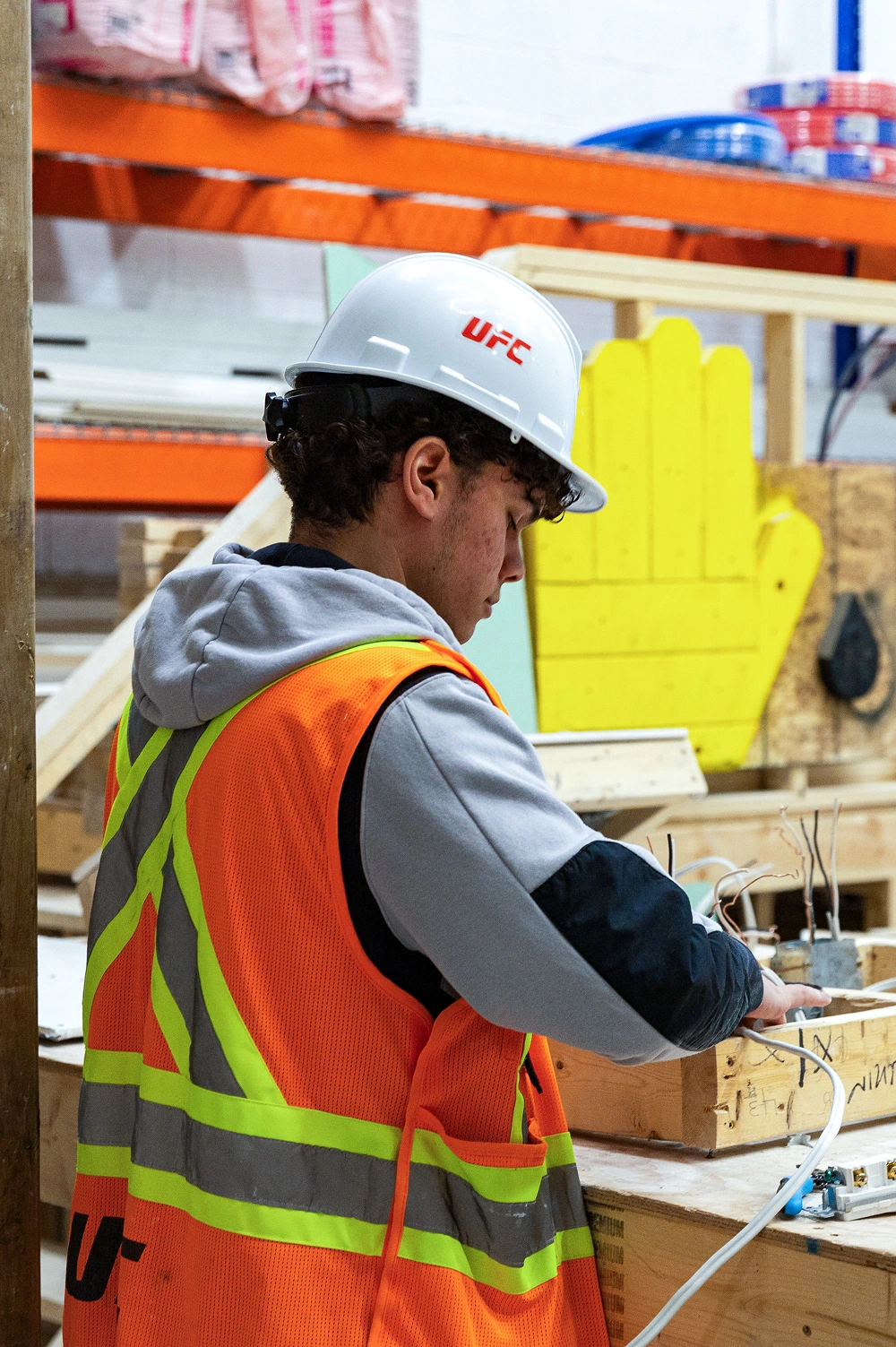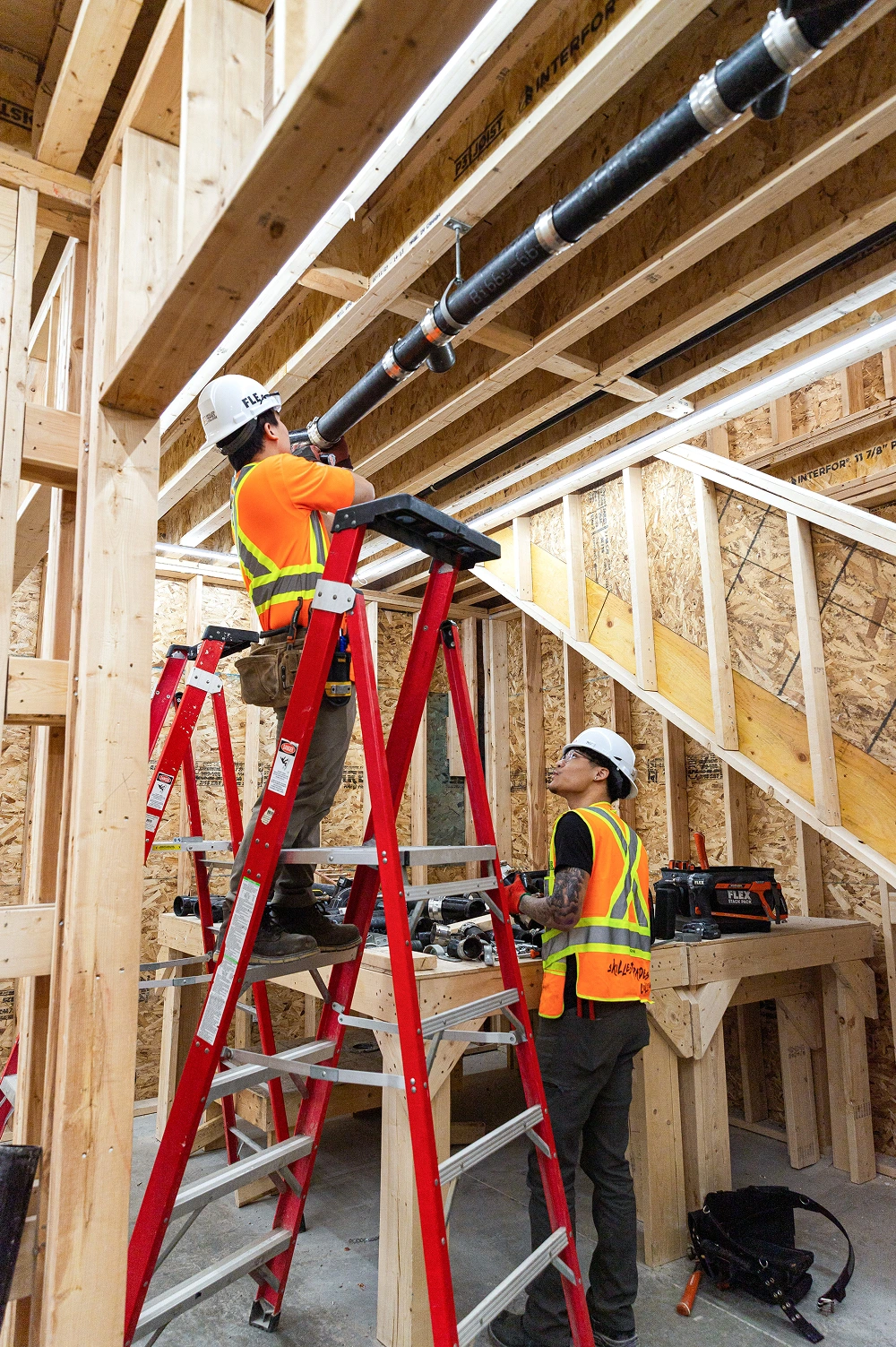How the Intro to Home Renovations Course Can Shape Your Future in Trades

Published On
12-07-2023

If you are embarking on a journey to becoming a plumber, we'd like to applaud you on your career choice. This profession is ripe with high-paying opportunities that will challenge you and reward your skill development.
As far as plumber qualifications go, the typical path involves completing an apprenticeship before getting on-the-job experience. Apprenticeships are incredibly competitive, so completing a pre-apprenticeship program can make getting your qualifications easier by giving you a leg up on your competition.
But what makes a great plumber? In this article, we’ll discuss the plumbing skills that need to carve out a path for yourself—and where you can learn them!

Technical skills are the foundation of your work. Everyone who has completed their plumber qualifications will have a handle on these skills.
This is where it all begins. While you may dream of designing complex plumbing systems for massive industrial buildings, every plumber needs to get the basics down first. Any plumber worth hiring will know the ins and outs of the following plumber procedures:
Acquiring the right skills is crucial for success in this rewarding and in-demand field; which is why completing a pre-apprenticeship program is key if you want hands-on experience with the technical aspects of becoming a plumber.
Being able to read blueprints doesn't happen out of the blue.
Interpreting blueprints means having an understanding of both mechanical and architectural illustrations to accurately install fixtures and appliances.
Like all plumbing skills, this one is built through practice. Getting hands-on experience reading schematics and interpreting drawings will hone your plumber eye and better prepare you to get jobs done right the first time.

Don’t run from math—embrace it as a plumber!
Numbers are your friend and will help you do your job and run your business. This fundamental life skill is integral for preparing cost estimates and going about simple calculations for all your plumbing installations.
While you likely won’t ever need to do advanced calculus, all plumbing career paths require rock-solid math skills. Brush up on yours if needed.
You may have all the plumbing know-how in the world, but the right tools are how you’ll put your expertise into action for your clients. Plungers, drain snakes, augers, wrenches, sump pumps, saws, power threaders, drills, welding torches—expect to use all of these and more as a plumber.
This is another reason why hands-on practice makes perfect when it comes to learning essential plumber qualifications—tools can be dangerous, so proper safety protocols and certification should be part of your training.
Soft skills are less tangible, but no less important qualifications for a plumber. Developing these plumbing skills will prepare you to excel in your work. Plumbers are always in high demand—especially those with a good grip on these.
If you are unfazed by working on weekends, holidays, and odd hours of the night, then you’re on the right track to become a plumber.
Most people find out the hard way that plumbing emergencies don’t take Saturday and Sunday off. Rather, it tends to be that pipes burst and toilets clog at the most inopportune times—will you be the plumber ready to help?
Being good at your job attracts customers, but customer service turns them into clients.
Every job can benefit from strong customer service skills, and plumbing is no exception. Plumbers often respond to crises and emergencies, meaning they need to be able to keep their cool and work with stressed customers. Be courteous and friendly!

The old idiom said it best: "the only constant in this world is change.”
A proficient plumber always stays on top of the latest technological trends and developments in the industry. From smart kitchen faucets to environmentally friendly water usage, there is something new to discover and learn everyday.
Being a plumber is physically demanding.
You'll need to be in good physical condition to perform meticulous tasks in confined spaces, lift heavy material, and handle equipment. Plumber qualifications mean very little if your body is not prepared to withstand the wear and tear of the job!
Every plumber needs to love passing the ball, too.
On a job site, you may find yourself working closely with gas fitters, electricians, subcontractors, and other types of tradespeople. While you may be amazing as a solo worker, trades are shifting to become more welcoming and collaborative. You need to know how to communicate clearly and share space to complete jobs successfully.
Knowing the plumbing skills you need to succeed is one thing, but learning them from the experts is another. Remember: practice makes perfect!
Combined technical and soft skill training is the core of Skilled Trades College’s industry-recognized plumbing pre-apprenticeship program. Our courses are designed to empower aspiring plumbers with the knowledge and expertise needed to excel in this dynamic industry. With an 80:20 hands-on vs. classroom experience, students can learn the way they do best—by doing!
Give us a call or send us a message to learn more about honing your plumber qualifications!
9,281+
LIVES CHANGED

12,481+
WIRES PULLED

85,382+
2X4'S CUT

9,756+
PIPES LAYED

9,281+
LIVES CHANGED

12,481+
WIRES PULLED

85,382+
2X4'S CUT

9,756+
PIPES LAYED

9,281+
LIVES CHANGED

12,481+
WIRES PULLED

85,382+
2X4'S CUT

9,756+
PIPES LAYED
